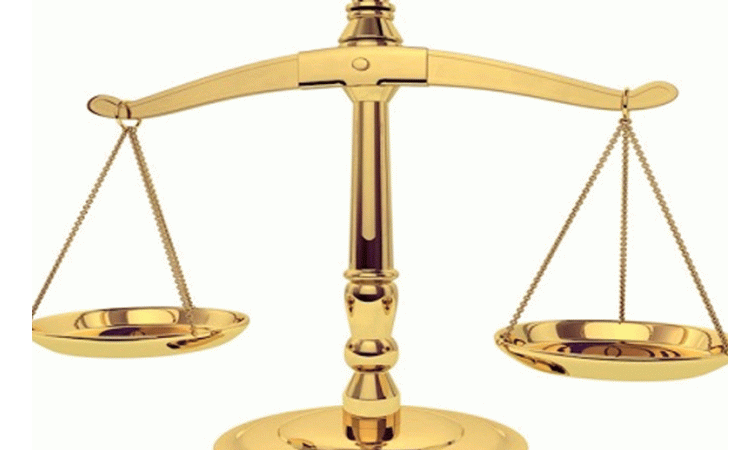Defection: Anxiety As Court Again Defers Judgment In Suit Seeking Ayade’s Sack

Expectations were heightened yesterday following the decision of a Federal High Court to defer judgment in the suit seeking the removal of Cross River State Governor, Prof. Ben Ayade and his deputy, Ivara Esu, from office over their defection from the Peoples Democratic Party (PDP) to the All Progressives Congress (APC).
This was the second time the court would be shifting the date to deliver judgment in the suit brought against Ayade and Esu for dumping the PDP.
The PDP had approached the court to challenge the continued stay in office of Ayade and his deputy, haven decamped from the party which brought them into office as governor and deputy governor.
After taking submissions from all lawyers representing parties in the suit, Justice Taiwo then adjourned to March 25, for judgment.
The adjournment was made after the judge delivered judgment in another suit brought by the PDP against 20 lawmakers who had last year decamped alongside Ayade to the APC.
Justice Taiwo had in his judgment sacked the 20 lawmakers including two House of Representatives members on the grounds that they cannot remain in office having left the PDP that brought them to office.
However, on the adjourned date of March 25, the court did not sit and it was learnt that the judgment was not yet ready. A new date of April 6, was announced.
Respondents in the suit mark FHC/ABJ/CS/975/2021 are the Independent National Electoral Commission (INEC), APC, Ayade and Esu.
However, when the court resumed yesterday, rather than delivering judgment, Justice Taiwo asked parties to address him on the propriety of his delivery of the judgment taking into consideration the Court of Appeal Judgment in the case of Ebonyi State Governor, Mr. Dave Umahi and his deputy, which held that they cannot be removed from office on account of defection.
Responding, the lawyer to the PDP, Chief Emmanuel Ukala, urged the court to go ahead to deliver its judgment because the issues canvassed in the suit determined by the Enugu Division of the Court of Appeal were quite different from the ones being canvassed by his client, adding that what his client is asking the court to interpret, was not what was presented at the Ebonyi High Court which was the case that the appellate court took a decision on.
However, Ayade and his deputy through their lawyer urged the court to decline the delivery of his judgment and submit to the judgment of the appellate court because the issues that the plaintiff brought before it for determination were exactly the same as those already decided by the Court of Appeal.
After listening to the arguments of all parties, Justice Taiwo announced that judgment in the matter would be delivered today.
Recall that the appellate court had in a unanimous judgment delivered on April 1, held that Governor Umahi and his deputy had the right to move to any political party they so wished, adding that there was nowhere in the constitution, that barred a sitting governor from defecting to any political party.
Justice A. O. Belgore, who delivered the judgment said the governor and his deputy did not offend any provision of the Constitution or the Electoral Act, as there was no consequence under the law against the defection of the holder of the office of the President, Vice President, Governor or Deputy Governor, to another political party from the party that sponsored the election that brought him or her to office
The Court of Appeal further held that the defection of a political office holder may appear immoral, but it was not the duty of the Court to embark on an investigation or probe into the provisions of the laws, warning that judicial activism must not be turned into judicial rascality.
The Appellate Court further held that there was no provision in sections 180, 188 or 189 of the 1999 Constitution as amended, that empowered the Court to remove either a sitting governor or the deputy.
According to the learned Justices, “defection of an office holder is not novel to Nigeria’s judicial jurisprudence.”
Ayade alongside his deputy were elected on the platform of the PDP in 2015 and 2019, but defected to the APC on May 20, 2021, leading to the current suit.
PDP is asking the court to declare that,
in view of the provisions of section 221 of the Constitution of the federal republic of Nigeria, 1999 (as amended) and the democratic system of governance operated in Nigeria, votes at the election and elections are won by political parties and not their candidate or the candidates sponsored at the election by the political parties.
The party is also seeking an order directing INEC,
to immediately receive from the plaintiff (PDP), the name of its candidates to replace the 3rd and 4th defendants (Ayade and Esu) for the purpose of utilising the lawful votes cast in favour of the plaintiff or in the alternative directing the 1st defendant to hold a gubernatorial election for Cross River State in accordance with Section 177 of the Constitution (excluding the 3rd and 4th defendants who are disqualified from participating in the election by virtue of Section 192 (1) (b) of the Constitution) arising from the abandonment of the majority lawful votes and the offices occasioned by the action of the 3rd and 4th defendants by reason of their becoming members of the 2nd defendant who did not win majority of the lawful votes cast at the election.
Recall that Justice Taiwo had in a similar suit filed by the PDP ordered the removal of two Cross River State House of Representatives members and 18 House of Assembly members for defecting from the PDP to the APC.
Justice Taiwo in the judgment held that their continued stay in office haven decamped to the APC was illegal, unconstitutional, and unlawful. On Monday, Taiwo Taiwo, a judge, sacked 20 lawmakers from Cross River state who defected alongside the governor to the APC.

Justin Nwosu is the founder and publisher of Flavision. His core interest is in writing unbiased news about Nigeria in particular and Africa in general. He’s a strong adherent of investigative journalism, with a bent on exposing corruption, abuse of power and societal ills.













